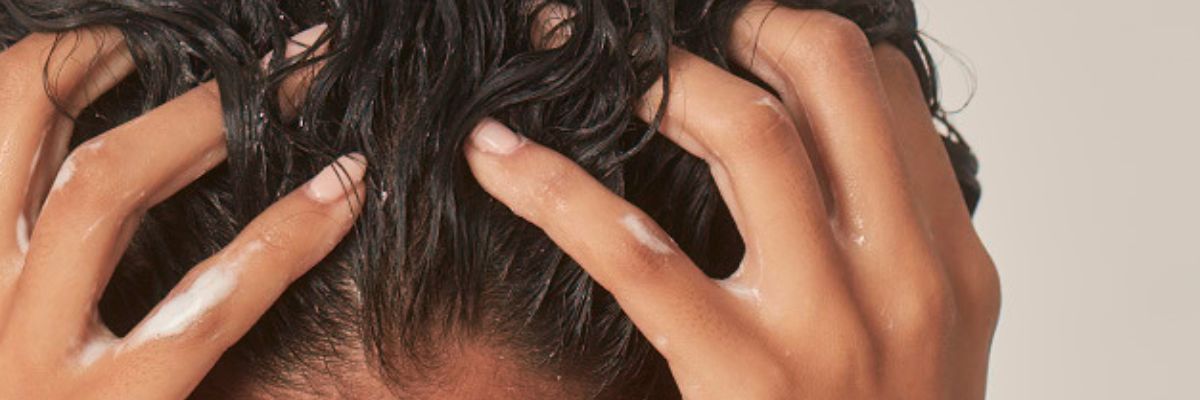Whilst some lucky ladies get that 'pregnancy glow' many others unfortunately experience a variety of skin issues. The most common skin issues being acne and perioral dermatitis during their pregnancy.

While pregnant, your body goes through various physiological changes and there are several types of skin conditions that can occur. These conditions generally fall into three classes:
1 - Hormone-related
Hormone changes may cause several skin conditions such as stretch marks, hyper-pigmentation, thinning hair and brittle nails.
2 - Pre-existing issues
Common pre-existing conditions such as acne, atopic dermatitis, perioral dermatitis and psoriasis may flare up during pregnancy. These conditions may have been underlying for many years and only surface during pregnancy. Many of these conditions can also be linked to hormonal changes.
3 - Pregnancy specific
There are several pregnancy specific skin conditions that can arise and most of which only require symptomatic treatment and resolve postpartum. One common condition is pruritic urticarial papules and plaques of pregnancy (PUPPP). This manifests as an outbreak of red bumps that can itch, sting or even cause a burning feeling. The bumps range in size and can combine to form plaques that cover a large skin area.

Hormone related and pre - existing skin issues are very common in pregnant women. According to Kiri Yanchenko, founder of AMPERNA®, the most common conditions her clients need help with during pregnancy are perioral dermatitis and acne. We take a closer look at both of these skin conditions:
Perioral dermatitis (PD)
Perioral dermatitis means peri (around) oral (the mouth) and sometimes gets confused for acne. The rash tends to appear around the mouth and the folds of skin around the nose. It is made up of little bumps that are red in people with light skin and flesh coloured in people with darker skin. Along with the rash comes dry and flaky skin that often itches and causes a burning sensation.
One of Kiri’s clients recently wrote to her explaining:
“I’m certain that my PD was due to hormonal changes after I had my children...what do you think? My doctor seemed adamant that that was not the case, and pretty much pushed the subject aside and said they were not concerned with the “rash”, it would go away with some steroid cream. I wonder how many women have experienced what I have experienced. Seems more common now that I have taken the time to look into it more.”
The challenge for this lady and many other PD sufferers is that steroids are often prescribed as the ‘go-to’ solution. The problem is that many people have serious side effects to topical steroids such as topical steroid addiction/withdrawal, sometimes referred to as ‘red skin syndrome’. This side effect can occur when frequently using or misusing moderate to high potency corticosteroids and then suddenly stopping. It can result in a worsening rash that requires stronger and more frequent application of topical steroids to control. It is a vicious cycle.
Kiri regularly helps her pregnant clients suffering from PD with the AMPERNA® range. The products are suitable for all skin types and for use during pregnancy. The range has been tested on eczema, perioral dermatitis, rosacea, acne prone skin and more.

Acne
During pregnancy, acne can be triggered, get worse or for some people it can actually improve. For the majority of women, acne tends to get a bit worse in the early phase of pregnancy and improve as pregnancy progresses.
One of the major causes of acne during pregnancy is hormone surges. Around the 6-week mark into pregnancy, hormones start to surge which can cause glands to increase the production of sebum. When this occurs the hair follicles can become clogged with the over-supply of sebum and dead skin cells. Soon enough whiteheads, blackheads or pimples can appear on the face, chest, upper back and shoulders.
In addition to surging hormones, your body is also retaining significantly more fluid when pregnant and this can encourage the accumulation of toxins which promote the build up of acne.
With all these changes during pregnancy, it is extremely important to take good care of your health, which includes looking after your skin. Kiri works with many pregnant women to tailor a skincare regime to help them manage their acne, PD and other skin conditions. Her clientele has experienced extremely encouraging results. Find out more about the AMPERNA® regime and how it can help you.
Sources:
https://www.aafp.org/afp/2007/0115/p211.html
https://www.medicalnewstoday.com/articles/305605
https://www.webmd.com/baby/features/skin-problems-of-pregnancy#1
https://pymbledermatology.com.au/medical-services/medical-dermatology/skin-disorders-in-pregnancy/
https://www.whattoexpect.com/pregnancy/whose-body/acne.aspx
https://dermnetnz.org/topics/acne-in-pregnancy/
















![Introducing AMPERNA® [DERMACARE] Haircare: For Scalp Comfort and Strong Hair](http://amperna.com/cdn/shop/articles/42_efd53385-7cf9-4b45-8e54-982415ee8fbc.jpg?crop=center&height=720&v=1761871871&width=1200)

